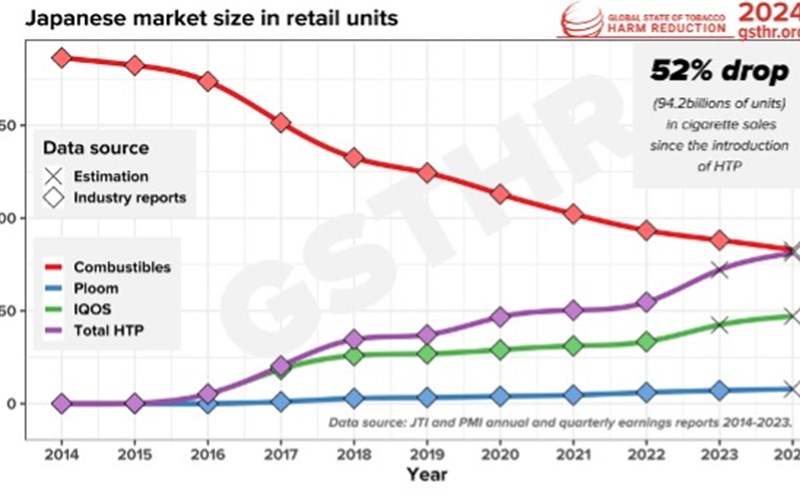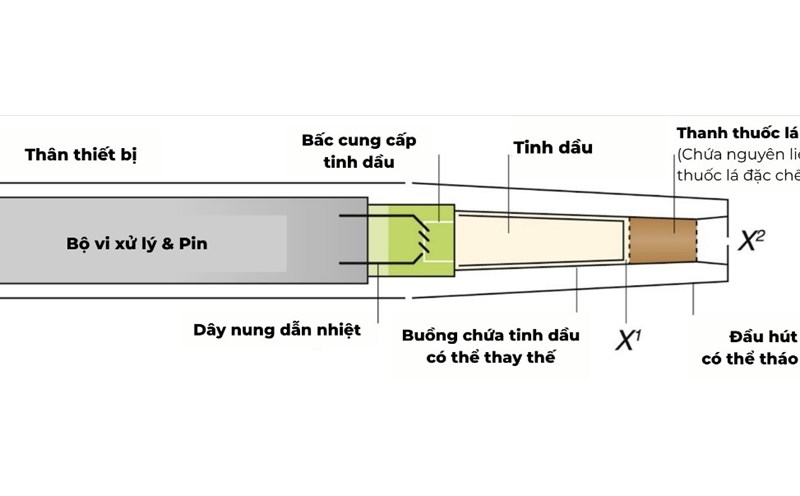On the other hand, the strong development of e-commerce, social networks and small-scale transportation has supported smuggling lines.
Thousands of sophisticated tricks to circumvent the ban
Underground transactions in closed groups, frequent changes in delivery locations, "coding" information... are sophisticated tricks that online stores in Vietnam are implementing to buy and sell electronic cigarettes, electronic cigarettes, electronic cigarettes to evade the authorities. Despite the health risks from e-commerce containing disguised banned substances, high fines, and the possibility of criminal prosecution, the use of these items continues.
Right before the ban took effect, many stores had " solved their goods", closed or changed careers to avoid legal risks. But in reality, supply has not been interrupted, even increasing prices with the reason of the ban leading to "selling goods".
The method of transporting goods, communicating, or consulting has also changed to adapt to the ban: encrypting transaction information, using a separate transportation network, dividing goods, disguising them in many forms... For buyers, in addition to product advertisements, there are also attractive invitations such as "distributing goods to the place", "absolutely anonymous"... This makes it difficult for the authorities to detect and handle.
Mr. Phan Quoc Dong - Deputy Head of the Anti-smuggling Investigation Department, Customs Department (Ministry of Finance) at the seminar "Preventing cigarette smuggling: Many challenges" in April 2025 said that the reason why smuggling prevention is difficult is the need of consumers still present.

Therefore, Mr. Nguyen Quoc Viet - former Deputy Director, Institute for Economic and Policy Research (VERP) commented: "Solutions to combat smuggling are not only limited in capture and handling, but the important thing is to consider the current situation of demand. We need to have a very specific survey on how consumers choose.
Australia, ASEAN: solo solving the problem of preventing smuggling
According to recent reports from international media, although Australia has banned e-commerce and electronic cigarettes, the number of uses is still increasing.

According to a survey by Roy Morgan, the rate of Australian youth aged 18-24 using e-cigarettes has increased from 19,9% to 20.5%, while the rate of traditional cigarettes has also increased from 8.2% to 11.1% in just a few months after the ban. The black market continues to explode, with a series of smuggled cigarette stores springing up in big cities such as Sydney, Melbourne... leading to a series of consequences affecting security and social order.
Experts warn that the lack of legal alternatives and no effective conversion roadmap or support solutions have caused consumers, especially young people, to seek illegal buying and selling channels. CEO Roy Morgan, Michele Levine, said that rigid control policies may be counterproductive because they force users to switch to more toxic products.
In the Asean region, in Thailand, the value of seized e-commerce goods has increased from 300,000 USD (2019) to more than 16 million USD after just 1 year. It is estimated that 25% of cigarettes consumed in this country are smuggled, causing a tax loss of more than 28 billion baht per year.
Although Singapore is famous for its strict enforcement of the law, according to statistics from the Ministry of Health, in the first 9 months of 2024, there were 9,680 cases handled for illegal use or storage of electronic cigarettes, nearly double that of 2022 (4,916). From July to September alone, 743 students had their records transferred by the school and 591 cases of violations were discovered by the patrol force.
This situation shows that the problem of smuggling of electronic cigarettes and electronic cigarettes is still complicated, even showing signs of counterproduction in some countries applying ban policies. This requires authorities to constantly update scientific and technological advances, improve professional capacity and adapt to new methods of crime.
On the other hand, to effectively prevent smuggling, it is necessary to improve the legal system, including considering more balanced and reasonable control policies to meet practical management needs.










